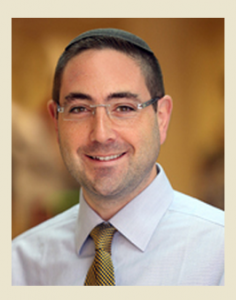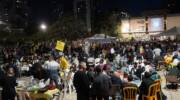
By Rabbi Ari Enkin, rabbinic director, United with Israel
The Israeli legal system is based in common law, which also incorporates facets of civil law. Israel does not have a formal Constitution.
Israeli law is a mixed legal system reflecting the diverse history of the territory of the State of Israel throughout the last hundred years (under Ottoman, and then British, sovereignty) as well as the legal systems of its major religious communities.
The Israeli legal system is based in common law, which also incorporates facets of civil law. Israel does not have a formal Constitution. Laws enacted by the Knesset, particularly the Basic Laws of Israel, provide the framework of Israeli law. which is enriched by political and judicial precedent.
Foreign and historical influences on modern-day Israeli law are varied and include the Mecelle (civil code of the Ottoman Empire) and German civil law, religious law (Jewish Halacha mostly pertaining in the area of family law) and British common law. Some aspects of Turkish Ottoman law remain until today, such as placing personal status and marriage law in the hands of the religious courts. The Israeli courts have been influenced in recent years by American and Canadian aw
The Shalom Court (Beit Mishpat HaShalom) handles civil cases involving less than 2.5 million shekels, but not disputes over the ownership of land or criminal cases in which the maximum sentence is seven years or more. Shalom Courts can be found in most Israeli towns and cities.
The Shalom Court has six subdivisions:
(1) The Juvenile Court deals with criminal offenses committed by people who were not 18 on the date of prosecution and some issues relating to the removal of children from parental custody;
(2) The Family Court deals with all civil cases where the parties are close family members;
(3) The Small Claims Court deals with cases of less than 30,000 shekels;
(4) Hotsa’a Lapoal is the bailiff’s office for judgment in debt collection;
(5) The Traffic Court deals with all traffic offenses; and
(6) The Court of Local Issues deals with all offenses prosecuted by local authorities, such as parking tickets and planning violations.
The District Court (Beit Mishpat Mehozi) deals with all civil and criminal matters not under the jurisdiction of the Shalom Court, including disputes over the ownership of land. This court also hears appeals from the Shalom Court. There are six courts, one in each of Israel’s districts: Jerusalem, Tel Aviv, Haifa, “Center” (in Petah Tikva), “South” (in Be’er Sheva) and “North” (in Nazareth).
The Israeli Supreme Court (Beit Mishpat Elyon) mostly hears appeals from the District Court but also sits as the High Court of Justice and, as such, hears administrative cases not under the jurisdiction of the District Courts. Many political cases and cases of international interest are heard by the Supreme Court.
Religious Courts
There are also religious courts in Israel. Some specific legal matters in Israel, primarily matters of personal status, such as marriage and divorce, come under the jurisdiction of the religious tribunal system. There is a list of legally recognized religious communities: Jewish, Muslim, Greek Orthodox Christian, Catholic Christian, etc. Each religious community has its own religious court. For example, Jewish weddings are sanctioned only by the local Religious Council, and divorces of Jews are handled exclusively by the Rabbinical Courts. The judges (dayanim) of the Jewish Rabbinical Courts are all Orthodox rabbis.
Do You Love Israel? Make a Donation - Show Your Support!
Donate to vital charities that help protect Israeli citizens and inspire millions around the world to support Israel too!
Now more than ever, Israel needs your help to fight and win the war -- including on the battlefield of public opinion.
Antisemitism, anti-Israel bias and boycotts are out of control. Israel's enemies are inciting terror and violence against innocent Israelis and Jews around the world. Help us fight back!






















